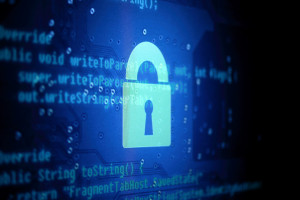Cyber Security Tips When Traveling Abroad
Not many people think about cyber security when traveling abroad – at least not until it’s too late and the damage has been done. We live in an age where internet access is all around us. Whether you’re riding in the backseat of a taxi or flying 35,000 feet over the Atlantic Ocean, you can enjoy fast and reliable Internet service. However, hackers and thieves have taken advantage of this fast-paced growth and development of wireless networks, preying on uneducated travelers.

Keep your Data Secure
Each year, hackers steal thousands of credit card and debit card numbers from unsuspecting computer users. Of course using these account numbers would put them at risk, so they operate through an underground network, selling stolen numbers for $5 to $10 a pop. Using a public network puts you at risk for having your card numbers stolen, regardless as to whether or not you make a purchase using the card. Hackers can install software known as a key-logger on your computer, which tracks each and every letter you type, including usernames and passwords.
Another concern that arises when using a public network is the possibility of identity theft. While this problem is on the forefront of many law enforcement agencies, over 12 million adults fall victim to identify theft each year. When you’re connected to a public internet, hackers can access your vital information stored or typed into your computer just as easily as you can. Even without your social security number, they can still cause a substantial amount of damage to your credit, bank accounts, and overall reputation.
If you plan on using the Internet during your travels, you have to be proactive in making cyber security a top priority. For starters, this means never storing all of your passwords all nice and neatly on an unencrypted file. If a hacker gets access to the account names and passwords for the accounts attached to your bank and credit cards, it can cost you more than just a headache.
Something not many computer-savvy people are aware of is their network sharing settings on their computer. Depending on which operating system you’re using, you can disallow, or allow, your computer to send and receive files on a network. If you unknowingly leave your network sharing on, you’re putting yourself at risk for having hackers steal your files and upload malicious software.
Most cyber security experts agree that the safest way to use a public internet is through a Virtual Private Network (VPN). There are both free and paid VPNs which block hackers from intercepting your data while accessed to a public WiFi. A VPN serves two primary functions: it encrypts all transmitted data, and it masks your real IP address, both of which are essential to cyber security.
 Offtek Blog Your source for everything memory
Offtek Blog Your source for everything memory
